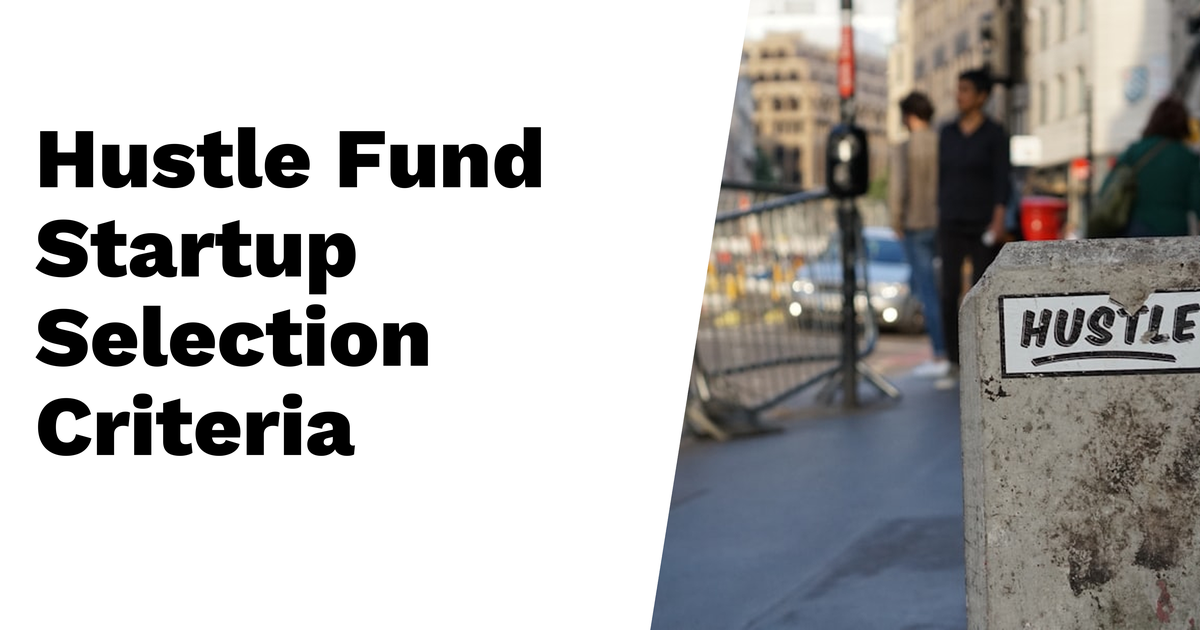Hustle Fund invests in early-stage startups with high growth potential, assessing them through the 5 T's framework and a four-point scoring system.
What is Hustle Fund?
Hustle Fund is a venture capital (VC) firm founded in 2017 by Elizabeth Yin, Eric Bahn, and Shiyan Koh.
- Their mission: “Back hustlers at the earliest stages of building a startup.”
- They invest in pre-seed and seed-stage startups globally (often the very first check).
- Typical investment: $25K–$500K early-stage capital.
- Portfolio includes 500+ startups across industries like fintech, SaaS, AI, consumer, and healthcare.
- They also run Founder community programs (Hustle Fund Angels, Angel Squad, Hustle Fund GP program).
👉 Hustle Fund is known for being founder-friendly, fast-moving, and more accessible compared to traditional VC firms.
🎯 Why is Hustle Fund Important for Startups?
- First Believers
They invest at the idea or very early stage, when most VCs won’t take the risk. - Global Network
Their community of angels, founders, and mentors helps startups get distribution, partnerships, and follow-on funding. - Educational Resources
They run accelerators, newsletters, and programs that teach founders fundraising, marketing, and scaling. - Access to Capital & Credibility
Having Hustle Fund on your cap table makes it easier to raise from larger VCs later. - Supportive Brand
They focus on speed + execution (hustle) rather than pedigree or fancy credentials.
✅ In short: Hustle Fund is important because they bridge the gap between an idea and Series A funding—where many startups die without early support.
🛠 Tools Hustle Fund (and Startups They Support) Use
Hustle Fund itself is a VC firm, so they run deal sourcing & founder outreach campaigns. The tools they (or startups in their ecosystem) commonly use:
Deal Sourcing & Lead Generation
- Clay → to find and enrich founder/startup data (fundraising activity, industry, stage).
- Crunchbase / PitchBook / CB Insights → to track startups & funding rounds.
- AngelList / Dealroom → to discover early-stage startups.
Outreach & Campaigns
- Opps.ai → automated cold outreach to founders & LPs (limited partners).
- Apollo.io / ZoomInfo → for enriched founder contact info.
- LinkedIn Sales Navigator → for connecting with startup founders directly.
- HubSpot / Affinity CRM → to manage deal flow and relationships.
Community & Education
- Slack / Discord → for founder communities.
- Substack / ConvertKit → for newsletters & content distribution.
- Airtable / Notion → for internal deal tracking & knowledge sharing.
Analytics & Ops
- DocSend → for pitch deck reviews.
- Carta → for cap table & equity management.
- Google Analytics + Data Studio → to measure community growth & funnel conversions.
✅ Summary
- Hustle Fund = early-stage VC firm backing “hustlers.”
- Importance = they fill the early capital gap, provide community, credibility, and education for startups.
- Tools = Clay, Opps.ai, Crunchbase, Apollo, Affinity, HubSpot, Slack, Substack to run campaigns, source deals, and support founders.
👉 Do you want me to also compare Hustle Fund vs Andreessen Horowitz (a16z) → showing why small funds like Hustle are sometimes more valuable for very early startups?
🔎 How Hustle Fund Chooses Startups
Unlike traditional VC firms that focus on pedigree (Stanford, ex-Google, ex-McKinsey) or traction (already $1M ARR), Hustle Fund looks for hustle and execution.
Here’s their approach:
1. Founder Hustle Over Credentials
- They believe execution speed > resume.
- Do founders ship fast, test ideas, and iterate quickly?
- They don’t care if you’re a first-time founder with no Ivy League background.
2. Market Potential
- Is the problem worth solving?
- Does the market have large-scale or growing demand (big TAM)?
3. Early Signs of Execution
-
Instead of full revenue traction, they look for:
-
MVP or prototype built quickly
- Creative ways founders got first users
- Evidence that founders can learn fast and pivot
4. Unique Insight / Edge
- Do founders have insider knowledge or a fresh take on the problem?
- Are they working in an emerging market (AI, healthtech, fintech, climate, etc.)?
5. Community Fit
- Hustle Fund is community-driven (Slack, Angel Squad, etc.).
- They back founders who are collaborative, resourceful, and willing to help others.
6. Stage
- They invest very early (pre-seed, seed).
- Typical check size: $25K–$500K.
- Geography: They invest globally.
🛠 How They Source & Evaluate Startups
-
Deal Flow Sources
-
Referrals from their community, Angel Squad, and portfolio founders
- Inbound applications on their website
- Outreach campaigns (using tools like Clay, Opps.ai, Crunchbase)
-
Initial Screening
-
Quick calls with founders
- Focus on team, execution, and problem space (not detailed financials at this stage)
-
Fast Decisions
-
Known for being fast movers → sometimes deciding in a few days.
-
Ongoing Support
-
If they invest, Hustle Fund helps with introductions, content, and fundraising prep for future rounds.
✅ Summary
Hustle Fund chooses startups by betting on founders with hustle, speed, and creativity — not just fancy resumes or revenue numbers.
They look for:
- Execution ability (can ship & iterate fast)
- Big market opportunities
- Unique founder insight
- Community-driven mindset


.svg)